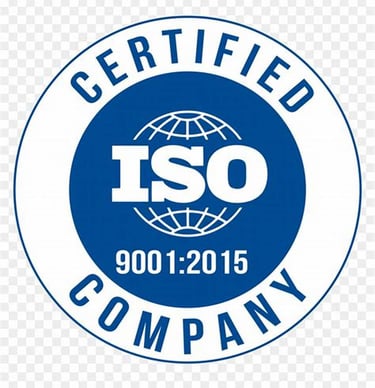Q: Are your ingredient products just a low-CO2 soy substitute?
A: Even if you regard Prota and Fiba as 'just' a soy substitute, soy makes up 2/3rd ($10bn) of the $15bn global alternative protein market. The market for soy protein isolate (a subset of the soy market) for human consumption is over $3bn. Compared to soy, our products are allergen-free, offer additional health benefits, can be used in a broad range of applications and we offer manufacturers an option with better environmental credentials.
We argue we are as competitive with mycelium, pea protein and egg alternatives as soy. This is important as, for instance, egg replacements accounted for US$ 1,283.0 million of sales in 2020 and is estimated to be US$ 2,132.4 million by 2030, a CAGR of 6.60%.
Q: Are your ingredient products 'novel' from a regulatory perspective?
A: No. Parents have been 'food smuggling' broccoli into children's meals for generations due to the fantastic health benefits of one of the world's most nutritious vegetables. What we are doing is aiding 'food smuggling' at what will be a kiloton scale.
Foods produced using precision fermentation are considered novel in the UK because they involve genetic modification of microorganisms such as yeast to create food ingredients such as dairy and egg proteins. We fractionalise vegetables cultivated and consumed since Roman times using minimal processing and we do not use genetic modification. We consider our Prota, Fiba Necta, Ova and Ola products will not be 'novel' as defined under UK law. We are obtaining 3rd party opinions that support our position and will publish them on our website prior to commercial launch. We will request confirmation from the UK Food Standards Agency (FSA) through an Article 4 consultation as appropriate.
We deliberately initially focussed on non-novel products to accelerate our time-to-market. We are in the early stages of working with a partner on a mycelium-based product that will use our 'Necta' product as a feedstock. This is likely to be considered a novel product under UK law as mycelium was not widely consumed before May 1997, although is widely consumed now in products such as those produced by Quorn. We will follow the appropriate process and work with national food standard agencies, initially the UK Food Standards Agency, to comply with their requirements.
Q: Do you aim to displace meat?
A: Prota and Fiba can be used in vegan or vegetarian food, or to partially displace meat, and could also be used to supplement meat alternatives, such as mycelium-based alternative proteins. We note that the Good Food Institute expects displacement of meat by alternative proteins to accelerate once alternative proteins achieve price parity or better with meat, and this is expected to occur from 2025-2032.
We aim to help meat manufacturers reduce their Scope 3 emissions and production costs through hybridization or 'blended' products. This will help them offer more planet-friendly, healthier and lower-cost products for those people that want to keep meat as part of their diet, and keep the taste and mouthfeel consumers enjoy. We are not anti-meat, we are pro CO2e reduction and for more affordable, healthier food. We believe that the principles of "improve rather than remove" and "positive action rather than moral judgement" will support the greatest net benefits in terms of GHG reduction and enhanced nutritional value for the wider community.
Q: Are your ingredient products GM free?
A: Yes, our products are genetically modified (GM) free.
We aim to give food manufacturers high-quality, nutritious, allergen-free vegetable protein and fibre that is grown by the farmers in that region in line with the highest of standards relevant to the jurisdiction of sale. Because we use regionally-sourced feedstock, in the UK and EU we will be GM free as GM broccoli is not grown in the UK or Spain.
GM broccoli is not currently used in the US and varieties available in the market are the result of traditional selective breeding, not genetic modification. Similarly, GM cauliflower is not currently grown commercially. Like broccoli, cauliflower available in the market is developed through traditional selective breeding methods rather than genetic modification. As a result, we believe that all our products will be GM free.
Were we to use GM feedstock, we would, of course, label to indicate such. However, we have no intention or need to do so in the foreseeable future.
Q: Are your ingredient products organic?
A: No, our products are not currently organic. However, we have a source of organic broccoli and were there to be sufficient demand could run a separate organic line. This would result in additional costs and so would be more expensive.
Q: Are your ingredient TVP?
No. Textured vegetable protein (TVP) is considered ultra-processed. It is generally made from defatted soy flour, which is a by-product of soybean oil production. The process generally involves high heat and chemical treatments to create a texture that mimics meat. While TVP is a concentrated source of protein, it generally lacks the fibre and phytonutrients found in whole foods. Additionally, manufacturers often add artificial flavourings to enhance its taste, further contributing to its ultra-processed nature.
So, our products are not ‘TVP’ as: we do not process soy, we do not use high heat and chemical treatments, we do not use artificial flavourings, and our product retains its rich diversity of fibre and phytonutrients
Q: Are your ingredient products vegan?
A: Yes, our products are vegan. In terms of the key elements of vegan foods:
Animal Ingredients: Our products and their ingredients do not involve the use of any animal products, by-products, or derivatives.
Animal Testing: The development and manufacture of our products, and their ingredients, have not involved any form of animal testing conducted by the company, on its behalf, or by parties over whom the company has effective control.
Genetically Modified Organisms (GMOs): We do not use inputs from GMOs. Were we to process GMO inputs, the GMOs will not involve animal genes or animal-derived substances.
Cross-Contamination: We only produce vegan products. However, we still take all reasonable steps to minimize cross-contamination from non-vegan substances during production.
Q: Have you conducted a PDCAAS study?
No. PDCAAS has now (largely) been replaced by DIAAS as an index of digestibility. A DIAAS value for just our ingredients is to some degree irrelevant as further processing will, for instance, likely lead to amino acids being altered, impacting overall digestibility. Recipe formulation will also affect the overall digestibility score in the final product. We are happy to work with food manufacturers to support them in obtaining DIAAS values for final products made with our ingredients. However, given industry expects a DIAAS value, we will obtain a 3rd party DIAAS assessment of our products once the production process is BRC certified, and all processes are locked. The DIAAS value will be published on our website.
Products & Ingredients
Get in touch
Keep updated
© 2024. All rights reserved.
+44 1952 327 357
welcome@upp.farm
Upcycled Plant Power ('UPP') Limited Company number: 14171122
VAT Number: 428 2222 17
Registered address:
Agri-Tech Centre
Poultry Drive
Edgmond, Newport
Shropshire
United Kingdom
TF10 8JZ
Connect with us
A list of our trademarks can be found here


